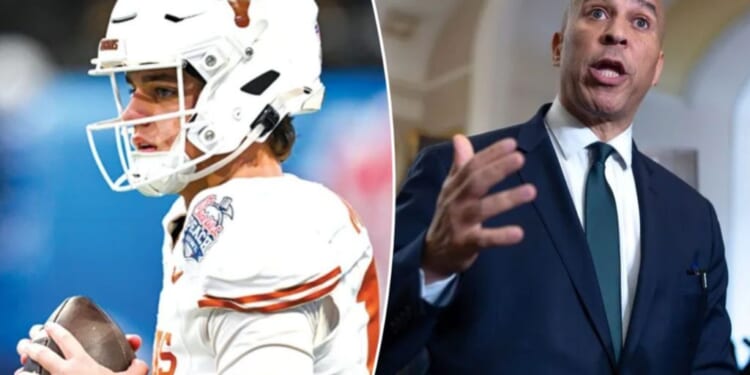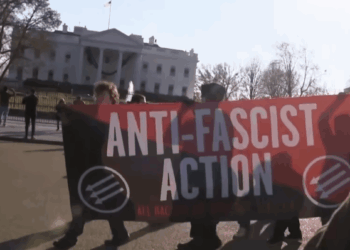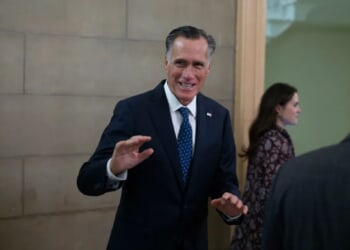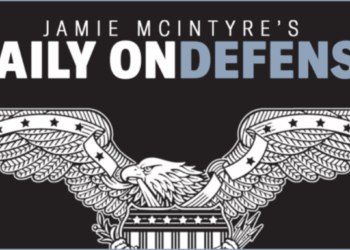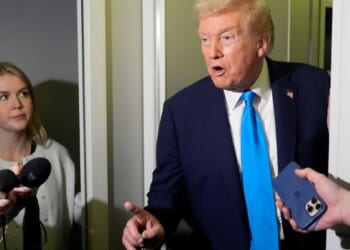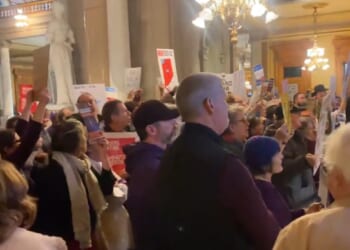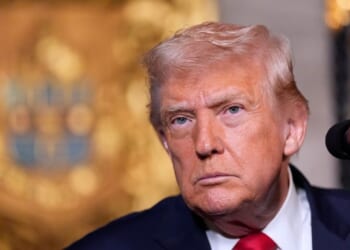The battle between Democrats and Republicans has shifted to the field of college sports and how athletes are treated under the law regarding ownership of their name, image, and likeness.
Liberty-respecting politicians are pushing a bill that would solidify the rights of individual athletes to compete in a free market by preserving their liberty to contract. A competing progressive approach would create a government-mandated committee to oversee athletes’ rights and impose limitations in a way that would lead to these athletes becoming de facto employees of a university. If you are a fan of college sports, you need to watch this debate closely.
Right now, athletes are allowed to profit by signing sponsorship deals, endorsements that include the use of social media to promote products and services. The NCAA describes NIL as “student-athletes have the opportunity to receive compensation from third parties using their personal brand, often referred to as their name, image and likeness.” The NCAA has established rules that limit compensation to commercial activities and initially banned payments for an athlete’s participation in sports.
GOVERNMENT SHUTDOWN WILL ADD TO THE FEDERAL DEBT
One big problem is that there is a 50-state regulatory framework that varies from state to state. Having a patchwork of different laws makes no sense when athletes are switching schools and have a difficult time figuring out what their rights are when they enter a new state jurisdiction. A standardized set of rules makes sense.
One change implemented this year allows schools, as described by CBS Sports, to “directly pay players for performance.” Schools are now allowed by the NCAA to share revenue with athletes with a hard cap per school. Currently, athletes are treated as independent contractors, yet some on the Left want to force them to be employees of schools. This would be a step backward if adopted.
The free market approach, the SCORE Act, championed by Rep. Gus Bilirakis (R-FL) in the House, preserves the free market for student athletes. The bill would codify the idea behind the Supreme Court’s ruling in NCAA v. Alston, which allowed students to benefit from their participation in athletics. The legislation would prevent students from being forced to be employees of a school of higher education and would protect them from compulsory unionization. The idea is that a student athlete would be working for themselves, not a forced employee of a school.
The progressive alternative to the SCORE Act is titled the SAFE Act and is being pushed by Sens. Maria Cantwell (D-WA), Cory Booker (D-NJ), and Richard Blumenthal (D-CT). This bill would impose undue regulations on student athletes and would be an invitation for trial lawyers to profit off schools by suing conferences and schools. The bill would force these students to be employees of the schools or be barred from participating. This would result in forced unionization and a diminution of the rights of athletes to control their own NIL rights. The legislation would also create a new bureaucracy to oversee media contracts and to negotiate on behalf of colleges for compensation for broadcasting and streaming rights.
One extreme provision in the Democratic approach would take away media negotiating rights from conferences and schools of higher education. Many of the top sports schools have negotiated deals that run past the end of this decade. The Democratic sponsored legislation would ban schools and conferences from extending current contracts. Power would shift to a government-mandated new NCAA commission to socialize the rights and conditions, including the way media rights would be distributed. If a school does not maintain the NCAA’s mandated scholarship requirements, even for non-revenue-generating sports, it would be punished.
THE DEBT CRISIS IS COMING FOR THE RIGHT
This should be an easy issue for those who want to protect student athletes. Providing athletes the personal freedom to contract on their own is the equivalent of a Student Athlete Bill of Rights. Students would far prefer to have independence from being employees of a school rather than being forced into working for them. It would be detrimental to student-athletes to have the school, not the athlete, own the name, image, and likeness rights that belong with the athlete.
This is a classic case of liberty versus collectivism. One free market piece of legislation wants to preserve the liberty and freedom of young athletes to own their NIL rights, while the progressive approach socializes athletes’ right to contract and college representatives’ opportunity to negotiate their media rights.
Brian Darling is a former Counsel and Senior Communications Director for Sen. Rand Paul.

